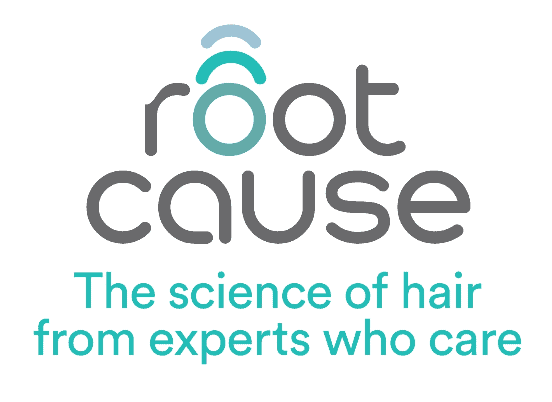Using Genetic Testing for Hair Loss
09.27.23

Genetics can provide the key to a practical and effective treatment pathway for hair loss. We explain what genetic testing is all about, and how we use it at Root Cause Clinical.
Why are hair genetics important to us?
As qualified trichologists, we rely on data and science to help diagnose hair loss and scalp health conditions. This can range from peer reviewed clinical studies to client feedback.
Studying genetics, which considers the genetic load inherited from our parents, can help us understand how our bodies function and our individual susceptibility to hair loss.
Why we use genetic testing in trichology
Using genetic testing for preventive and personalised care, allows us to offer more precise and effective treatments for hair loss.
“Even though human beings are genetically the same (99.9%), it is this 0.1% remaining which makes us different from each other and means what works for one person will not necessarily be effective for another. This is why we all respond differently to the same product, diet, exercise or ageing.”
Fagron Genomics1
When might genetic testing be useful for hair loss?
Genetic testing can be effective for three hair loss conditions – telogen effluvium (excessive hair shedding/ fall), androgenic alopecia (male/ female pattern hair loss), and alopecia areata (patchy autoimmune hair loss).

How do we use the genetic report?
After your initial hair loss consultation, if a clinical diagnosis indicates that you are experiencing one of the three hair loss conditions mentioned above, we may recommend genetic testing. The genetic test kit will arrive by post, and you will receive an email with video instructions.
The genetic consultation includes up to one hour with your trichologist to discuss your results, your genetic report which is emailed within 48 hours summarising discussions and your recommended treatment pathway, and a copy of your genetic results.
Once we receive the report based on your genetic test, which generally takes 3-4 weeks, we will organise a genetic video consultation with you.
During your genetic video consultation, we can discuss which treatment pathway will be most effective and why. This will range from recommended supplements to bespoke prescriptions.
“In 70% of cases treated with this approach, there is an improved treatment outcome and improved treatment efficacy.”
Fagron Genomics2

Genetic testing case study
David*, 47, came to our trichologist practitioner after suffering from thinning hair for over ten years. He had used multiple treatment regimes and was frustrated with the lack of positive results. David had invested over £1,000 in different products and solutions and felt he was getting nowhere.
After an initial video consultation, his condition was confirmed as androgenic alopecia (male pattern hair loss). This condition led to the recommendation of genetic testing. The results of the test revealed the genes which caused his predisposition to hair loss, and his trichologist practitioner recommended a specific prescription which was most likely to improve hair loss.
David has begun his new protocol, showing positive results, with a follow-on consultation in three months to review progress. Follow this journal to get an update on his progress in a few months.
“It was a really easy process, and very non-invasive and discreet. My trichologist walked through everything with me and gave me the confidence in the suggested treatment plan. I’m excited to see how this will impact my hair loss long-term as I am already seeing some positive signs.”
David*
Book your initial trichology consultation today to get to the bottom of your hair loss and scalp health and determine if genetic testing is an option for you.
References:
1 and 2 Fagron Genomics S.L.U
* name changed for anonymity
